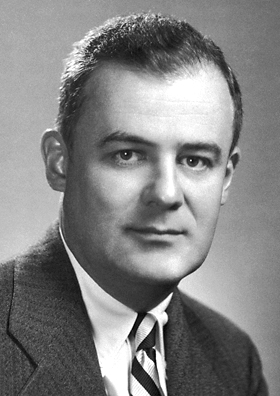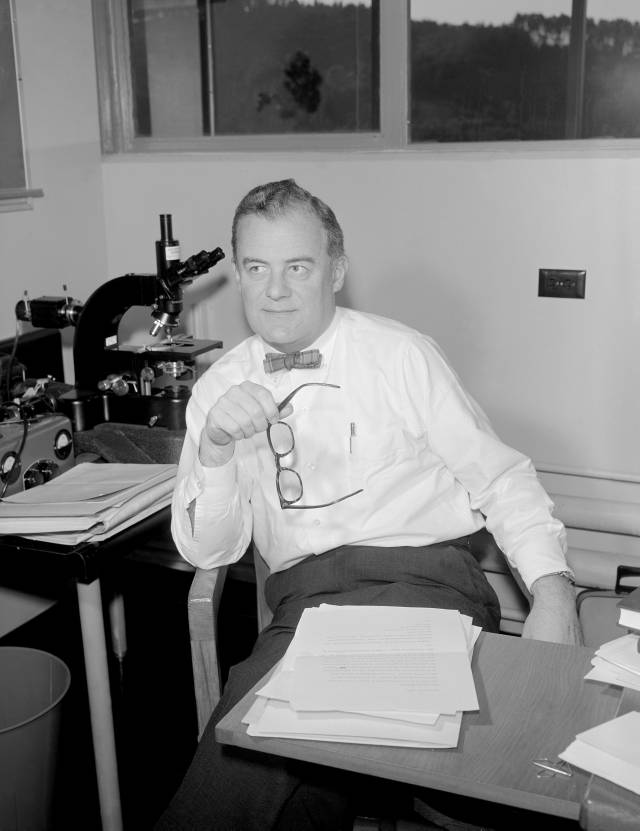<Back to Index>
- Pediatrician Frederick Chapman Robbins, 1916
- Playwright Kjeld Abell, 1901
- Chairman of the Council of State of the German Democratic Republic Erich Honecker, 1912
PAGE SPONSOR


Frederick Chapman Robbins (August 25, 1916 – August 4, 2003) was an American pediatrician and virologist.
He received the Nobel Prize in Physiology or Medicine in 1954 along with John Franklin Enders and Thomas Huckle Weller. The award was for his breakthrough work in isolation and growth of the polio virus, paving the way for vaccines developed by Jonas Salk, Albert Sabin, etc. He attended school at the University of Missouri and Harvard University.
In 1952, he was appointment as Professor of Pediatrics at Case Western Reserve University. Robbins was elected a Fellow of the American Academy of Arts and Sciences in 1962. From 1966 onwards, Robbins was Dean of the School of Medicine at Case Western. He led the medical school until 1980 when he assumed the Presidency of the National Academy of Sciences' Institute of Medicine. Five years later, in 1985, Robbins returned to Case Western Reserve as Dean Emeritus and distinguished University professor Emeritus. He continued to be a fixture at the medical school until his death in 2003. The medical school's "Frederick C. Robbins Society" is named in his honor.